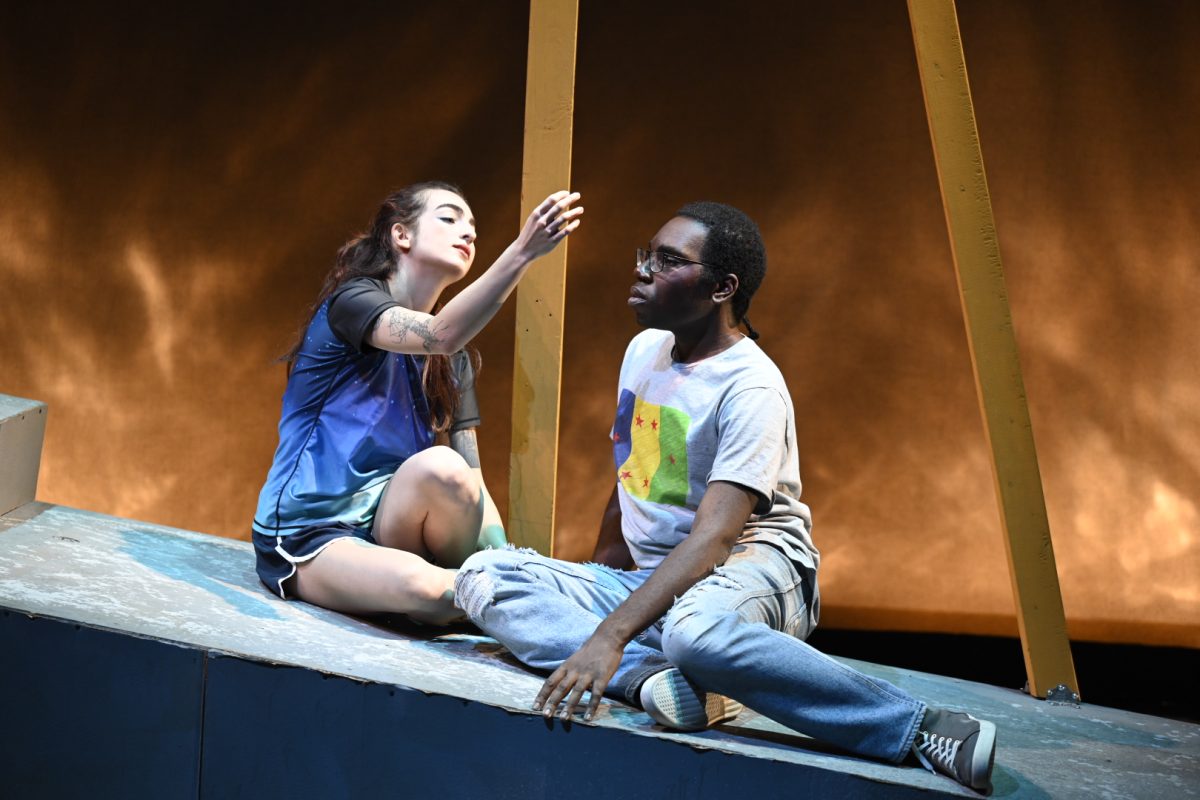This September, Carleton alumnus Andrij Parekh ’94 won a primetime Emmy Award for Outstanding Directing of a Drama Series. He won for directing Season 2, Episode 3 of the HBO show “Succession.” Mr. Parekh, a Sociology/Anthropology major with a minor in Media Studies, is well-known for his work in cinematography, particularly the films Madame Bovary and The Zookeeper’s Wife. The Carletonian sat down with Mr. Parekh to discuss all things Carleton, career and cinema.
Dane Swanser: Can you tell me a little bit about your experience in filmmaking and what aspects of Carleton contributed to your interest and success?
Andrij Parekh: Yes, I went to Carleton with the class of 1994 and left after my sophomore year because I didn’t know what I wanted to do in terms of a major. I ended up working for seven months doing two jobs and then traveled the world. When I traveled I brought a camera with me and in that period developed a sort of interest in travel photography, and movies were always a part of my life. When I came back to Carleton, I declared Sociology/Anthropology and Media Studies was just a minor. There was a professor there named John Shots. He was a guiding light who opened the world of film, filmmaking and film theory [for me]. I probably wouldn’t have gone into filmmaking if it wasn’t for him. We spent a lot of time making really bad short films and watching movies. It was an incredible experience for me. I think it was mainly that year off that made me hungry to get back to school, having been away from it. Then I applied to NYU while I was at Carleton and didn’t get in. I went to San Francisco for a year, then got in, then started doing cinematography and just recently started directing.
DS: You are obviously most well known for your work in cinematography. What prompted your interest to start directing?
AP: I sort of gravitated towards the camera because I didn’t know how to talk to actors and had no vocabulary on how to speak with them, and it was easy to sort of hide behind the camera. However, I want to do both. I’m working on remaking Ingmar Bergman’s Scenes From a Marriage and we’re going to start production in six weeks as a cinematographer. But I always want to be able to bounce between the two. They are two very different professions, but they satisfy two different parts of my personality.
DS: In your Emmy acceptance speech you said, “To those who don’t look like their classmates and are defined as outsiders, as hyphenated Americans and simply just Americans. This is proof that you do belong and this Emmy is ours.’” What change would you like to see in the film and entertainment industry for those who are defined as outsiders?
AP: I think just space for people to make things. It’s a very hard industry to get into. It requires a tremendous amount of patience, determination and dedication. When I went to NYU there were 36 of us in the first year class and maybe six working in film today. You spend a lot of time away from home. Most cinematographers are divorced because they spend a lot of time on the road. In terms of outsiders doing it, I think you just have to do it. Make your own space because nobody is going to give you that space. I think if you’re a self-starter then it’s something you can do, but if you’re expecting someone to do it for you it’s not going to happen.
DS: The Carleton community has been undergoing many discussions regarding the experiences of people of color at Carleton. Would you mind speaking on your experience as a POC at Carleton and what changes you would like to see?
AP: When I was there, there was a pretty big multicultural community. For me I think it’s more about making bridges and space for people. There’s this idea of those who are considered Americans and then those who are considered hyphenated Americans. One has to remind themselves that all Americans are immigrants except for the Indigenous population. It’s really just about making space for people to feel that they can exist and they are able to be themselves. I think that’s what America is about, a place where you don’t have to conform to a culture of society but you can be yourself and hopefully have some acceptance.
DS: What advice do you have for Carls and filmmakers?
AP: Make the products that you love because you’re going to be putting in a lot of effort. Find the projects that are in your heart. The work is 16-17 hours a day, so if you’re not doing the work you love then you’re going to burn out very quickly. For me, I go to work everyday and it’s never felt like work, which is what I love about it. It changes every single day. There’s something new for me and I’m constantly at play like a little kid. That’s what I love about it.












